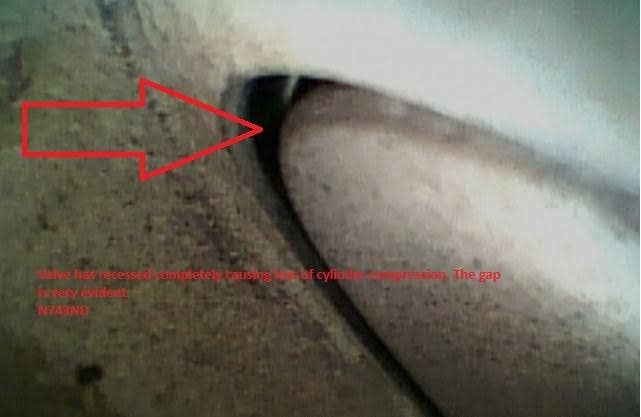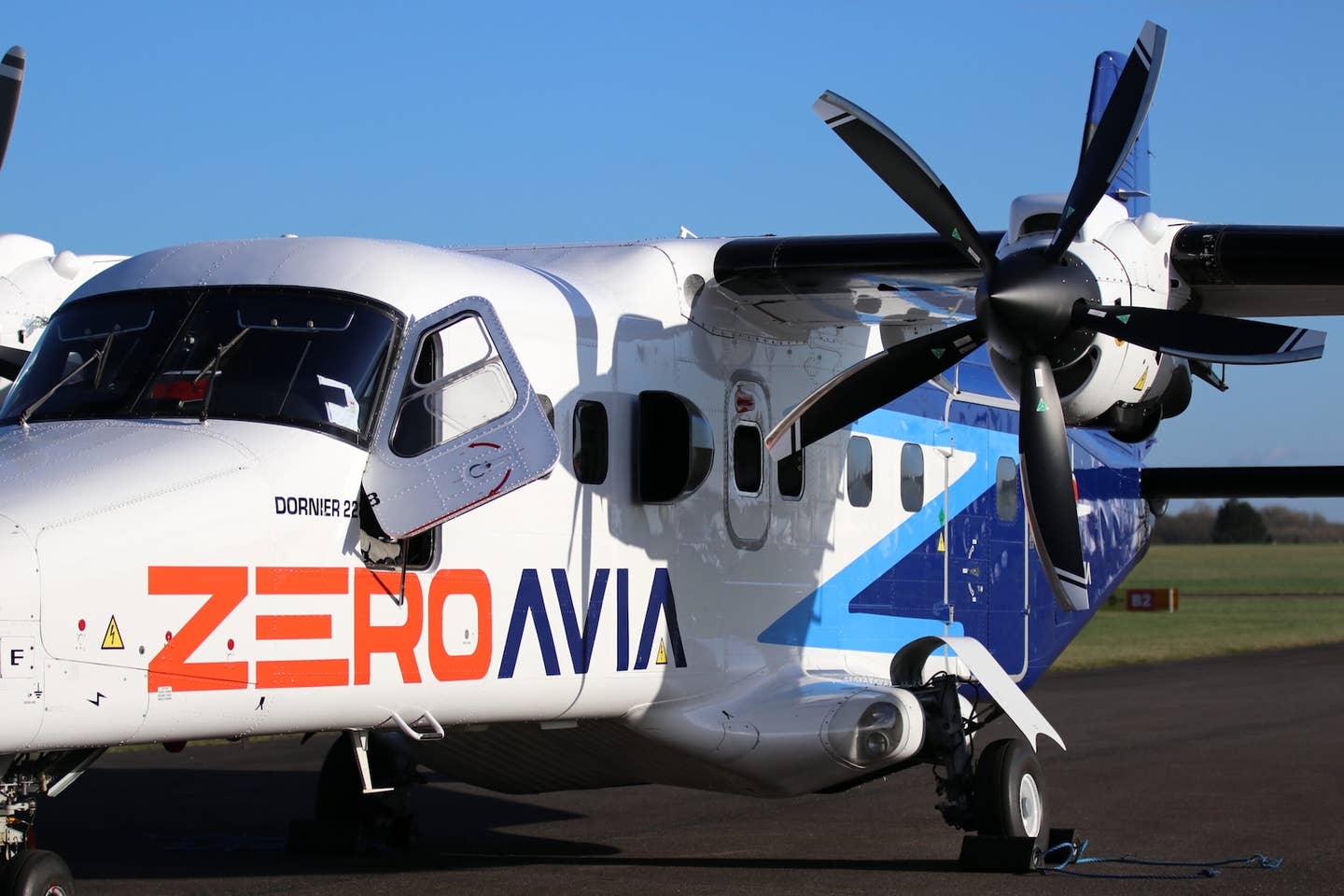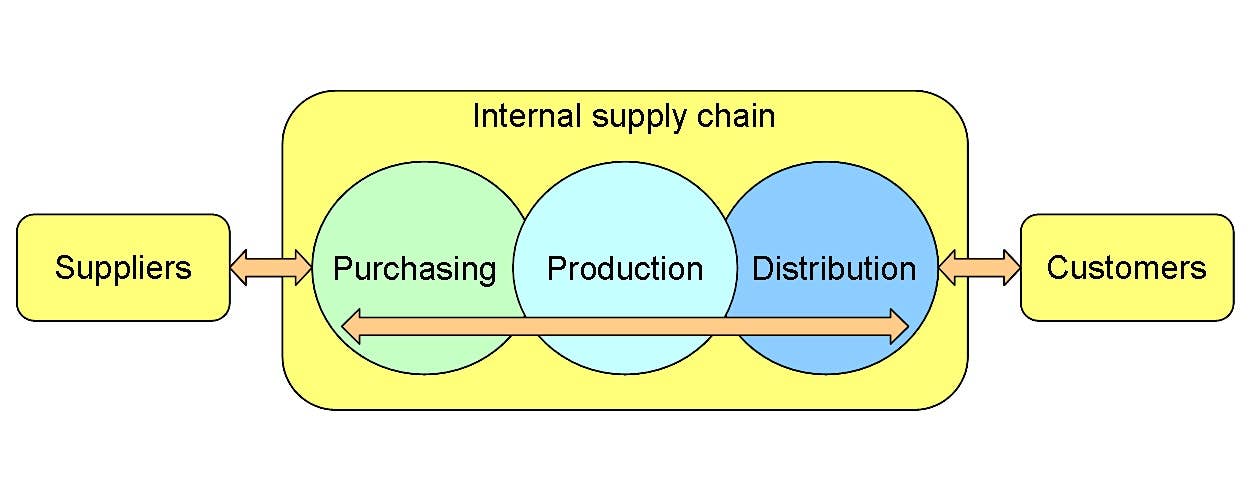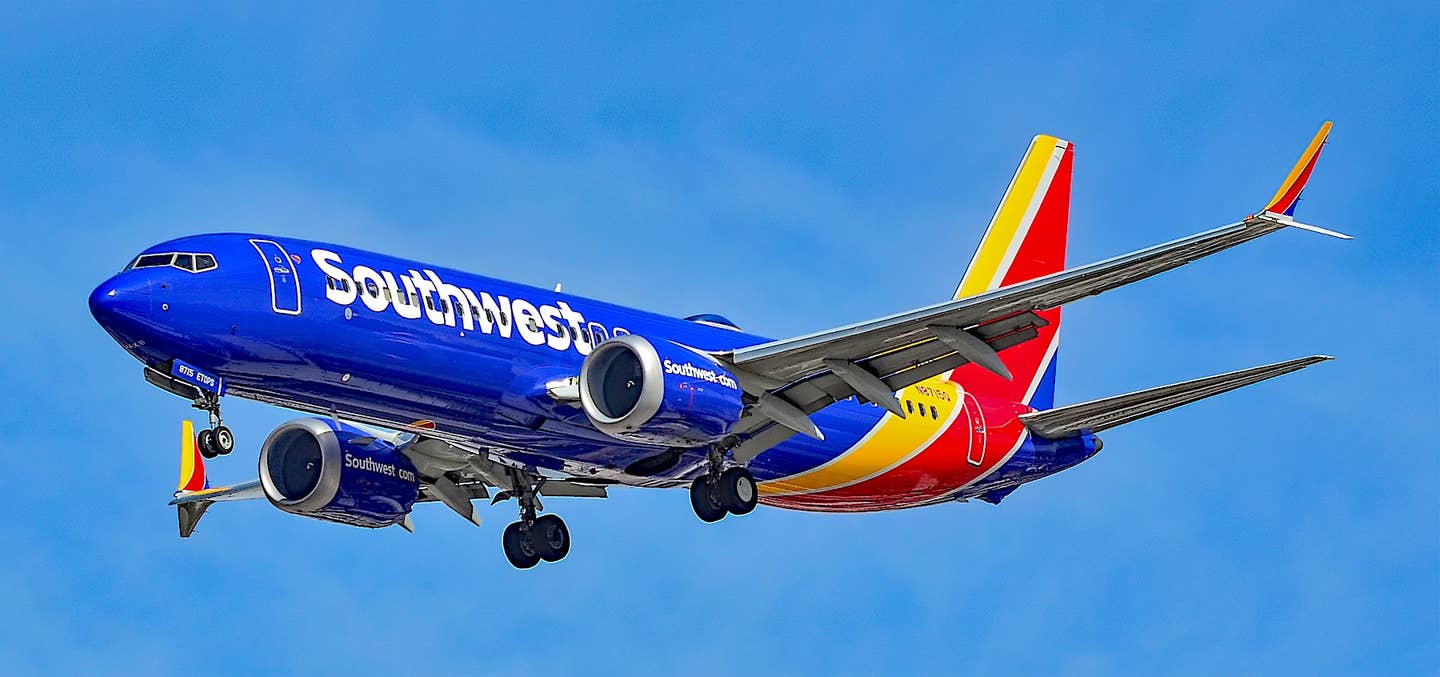Lycoming Says Aromatics In Fuel, Leaning Techniques May Have Caused Valve Problems
Lycoming says it doesn’t think its engines are to blame for the valve seat recession problems experienced by the University of North Dakota flight training department last year after it…

Arrow points to the gap where the valve has recessed completely causing loss of compression. Photo courtesy of UND
Lycoming says it doesn't think its engines are to blame for the valve seat recession problems experienced by the University of North Dakota flight training department last year after it switched to Swift Fuels' UL94 fuel. Rather, it says in a news release (copied in full below) its analysis suggests that "under certain conditions, use of UL94 may impact valve seat recession."
Lycoming says the analysis indicates that aromatic chemical concentrations in UL94 may cause the erosion of the valve seats under some flight conditions. Aromatics like benzene, toluene and xylene are used to boost octane in fuel and in "elevated" concentrations may result in "particulate abrasiveness to valve seats that may contribute to valve seat recession."
Lycoming says it's working with the FAA to further study the effects of aromatics on engines and notes that aromatics concentrations are not specified by the ASTM D7547 that applies to aviation gasoline. If aromatics turn out to be a problem for engines, Lycoming says it will work with the fuel industry to address aromatics in the standard and give guidance to operators on appropriate leaning techniques to prevent the engine damage. We have asked for comment from Swift and from General Aviation Modifications Inc. and will update this story as those responses come in.






